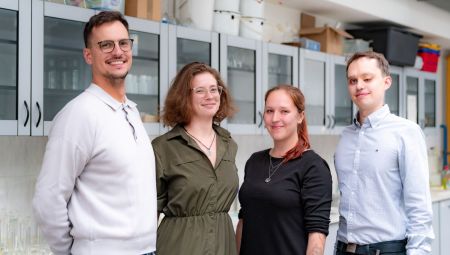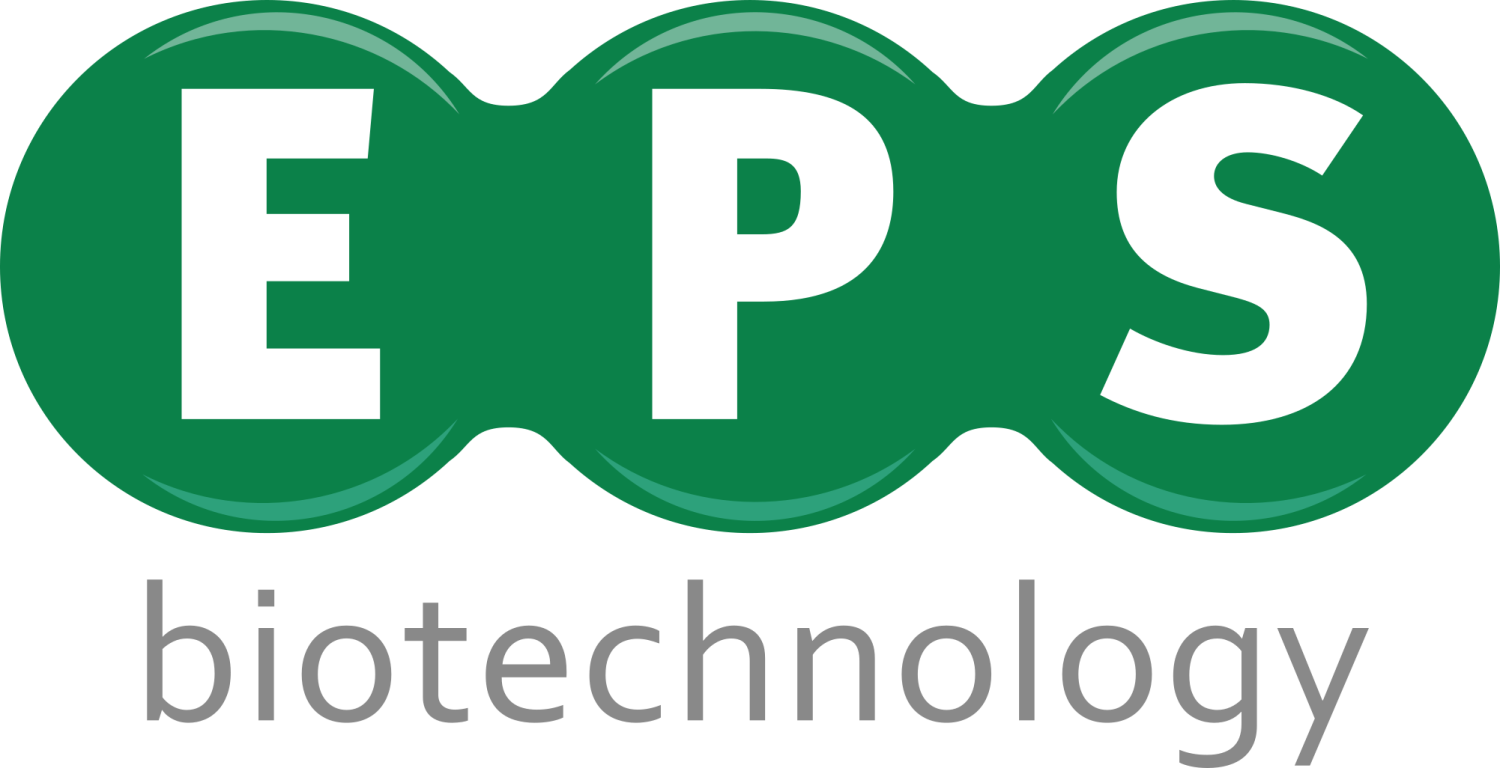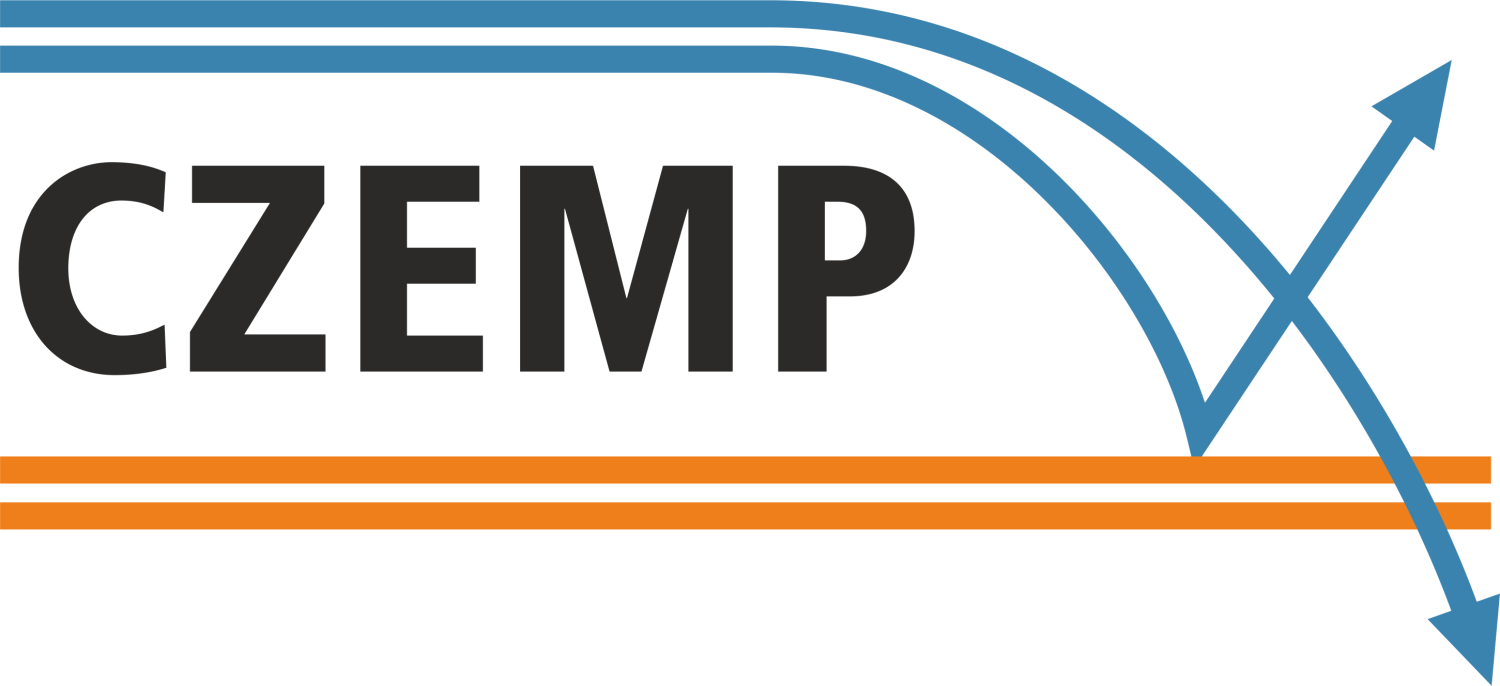Two groups at the department are focused on membrane technologies. The first is dedicated to pressure-driven and thermal membrane processes, particularly their application in the treatment of wastewater and industrial water, and the production of demineralized and drinking water. For this purpose, we operate three pressure-driven membrane units and one membrane distillation unit.
The second group investigates the application potential of membrane contactors, which are devices for the non-dispersive contact of two immiscible phases. To date, the group has successfully verified the effectiveness of these contactors for removing chlorinated hydrocarbons from water. The long-term goal of the group, in addition to wastewater treatment itself, is primarily the separation and recovery of valuable substances from waste streams.

RESEARCH AREAS
Study of Transport Phenomena in Membranes
- Membrane characterization: Membrane properties, pore size, polymer type, membrane configuration (hollow fiber, spiral-wound modules, plate-and-frame).
- Transport of substances through membranes: Driving force (pressure or concentration gradient), diffusivity, permeability, membrane flux intensity, etc.
- Long-term effects of membrane processes: Performance decline, the effect of membrane cleaning, backwashing, or antiscalants on membrane performance, membrane wetting.
Membrane Contactors
- Selection of membrane materials for the stability of the non-dispersive process; effect of membrane material on mass transfer rate; effect of fiber arrangement in the module on mass exchange at the liquid-liquid interface.
- Study of mass transfer processes within the device; selection of extraction liquid type on extraction efficiency; selection of extraction liquid type on the hydrodynamic properties of fluid flow; membrane swelling due to the type of extraction agent; membrane lifespan.
- Removal of undesirable substances from wastewater versus the recovery of valuable components from wastewater.
Application of Membrane Technologies
- Use of membrane technologies for the treatment of industrial, ground, and surface waters, and in the processing of seepage water and landfill leachate.
- Water recycling, production of demineralized water for industry.
- Recovery of concentrates using membrane processes—concentrates with high content of salts, organic substances, and crystallizing components.
Innovative Use of Membrane Technologies and Integrated Processes
- Utilization of waste heat in the membrane distillation process.
- Membrane processes in the food industry—de-alcoholization of beverages, processing of mineral waters.
- Low-cost technologies, integration of membrane technologies with current industrial solutions.
Selected Publications
2022
DURĎÁK, Václav; MARTINEC, Marek; ŠKAROHLÍD, Radek. Membránové kontaktory a jejich aplikační potenciál. Chemické listy, 2022, 116.1: 35-41.
Previous Years
2015 - 2020
GOSWAMI, Torsha; TACK, Filip M. G; MCGACHY, Lenka; ŠÍR, Marek. Remediation of Aviation Kerosene-Contaminated Soil by Sophorolipids from Candida bombicola CB 2107. Applied Sciences, 2020, 10.6
KHOLOMYEVA, Marina; VURM, Radek; TAJNAIOVÁ, Lucia; ŠÍR, Marek; ŠUKOVÁ, Mariia; KOČÍ, Vladimír. Phycoremediation of Landfill Leachate with Desmodesmus subspicatus: A Pre-Treatment for Reverse Osmosis. Water, 2020, 12.6, 1-17
KOCUREK, Pavel; HONZAJKOVÁ, Zuzana; ŠÍR, Marek; TOMÁŠOVÁ, Pavla; HENDRYCH, Jiří. Landfill leachate treatment using membrane separation: summary of laboratory testing experiences. Waste forum, 2018, 1, 48-59
BYSTRIANSKÝ, Martin; NIR, Oded; ŠÍR, Marek; HONZAJKOVÁ, Zuzana; VURM, Radek; HRYCHOVÁ, Pavla; BERVIC, Antonín; van der BRUGGEN, Bart. The presence of ferric iron promotes calcium sulfate scaling in reverse osmosis processes. Desalination, 393, 2016, 115 - 119



